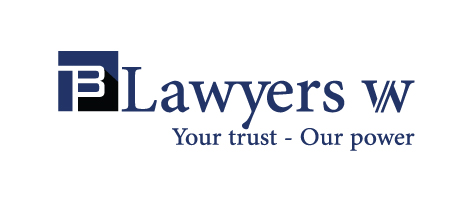Information and data confidentiality is extremely important for protecting business secrets and proprietary commercial advantages in the current economic situation. Therefore, companies often enter into a Non-disclosure and non-compete agreement (the “NDA”) with employees or in business activities to prevent information leakage. However, the NDA is still controversial in its implementation which leads to disputes.
Through this article, BLawyers Vietnam would like to present the NDA between employers and employees. In addition, we will also mention the viewpoints of the Court in Vietnam on this issue in practice.
1. What is an NDA in the labor field?
Currently, Vietnamese laws have not had specific provisions for this agreement. In practice, the NDA in the labor field is an agreement between the employee and the employer. When entering the NDA, the employee will be restricted from joining or performing competitive activities to harm the legitimate rights and interests of the employer during the performance of the labor contract (the “LC”) and especially after the termination of the LC. A common term in the NDA is that the employee is not allowed to work for the employer’s competitors for a certain period after resigning.
The NDA usually includes contents, time limit of protection of business secrets, technology secrets, and commitments of the employee not to disclose such confidential information of the employer to anyone, and measures to handle violations.
2. When is the NDA signed?
The current Labor Code regulated that the contents related to the protection of business secrets and technology secrets of the employee can be provided in the LC. However, in case the employer wants to have more specific agreements, a separate NDA can be signed.
The laws have not stipulated the time to sign the NDA. Thus, the time of signing will depend on the agreement of the parties. In practice, the NDA is often signed before (during the negotiation) or at the same time, as the LC is signed. To show the good faith of both parties to cooperate, the employee and the employer provide each other with full information about themselves and the information about the work that the employee will undertake. In case the LC cannot be signed, the parties are still obliged to keep information confidential according to the agreed NDA.
3. Employer’s right to protect business secrets
When finding out that the employee violates the NDA, the employer entitles to claim for damages that his/her business or technology secrets are disclosed. Depending on the period the employee commits the NDA violation, the employer will have different rights to claim a compensation as follows:
- If the employee violates the NDA during the performance of the LC, the employer is required to claim compensation according to the agreement in the NDA and in accordance with the provisions of the Labor Code.
- If the employee violates the NDA after terminating the LC, the employer is required to claim compensation according to the agreement in the NDA and in accordance with civil law and other relevant laws.
4. NDA disputes and judicial practice in Vietnam
Because the NDA is an agreement to protect the employer’s business and technology secrets, the violation of this agreement is mostly due to the violation of the employee. A dispute between the parties occurs when the employee fails to perform the compensation obligation as agreed in the NDA.
In practice, the Courts in Vietnam have two viewpoints on the NDA.
- First viewpoint: Recognizing the NDA
In Decision No. 755/2018/QD-PQTT, according to the provisions of the Civil Code 2015, the Court of Ho Chi Minh City stated that: If the employee has the full capacity as prescribed by law, is not compelled, deceived, or forced upon the will to sign the NDA, the NDA will be valid.
- Second viewpoint: Not recognizing the NDA
Contrary to the above viewpoint, in Decision No. 420/2019/LD-PT dated 15 May 2019 on Disputes upon the termination of labor contract with competitors, the Court of Ho Chi Minh City stated that the NDA is illegal. The Court see that this provision restricted the rights of the employee, and infringed on the freedom of job choices and workplaces of the employee as stipulated in the Constitution and the labor law.
Thus, without specific guidance, in the same dispute settlement authority, there were two different viewpoints on the NDA. Accordingly, the results of dispute settlement related to the previous NDA are affected depending on the opinion of the Trial Panel and there was no consensus.







